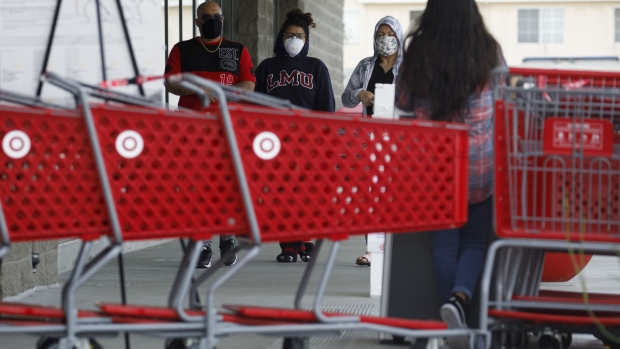Jun 17, 2020
Target boosts starting hourly wage in U.S. to US$15 as pledged
, Bloomberg News

Target Corp. is raising its minimum hourly wage to US$15 at a time when its workers are grappling with the dual impact of the pandemic and protests for racial equality that began in the chain’s hometown.
The cheap-chic retailer will move to US$15 an hour on July 5, fulfilling a pledge it made three years ago and providing about 275,000 workers a raise, the company said Wednesday. This follows US$1-an-hour increases in each of the past three years and puts Target well ahead of rival Walmart Inc.’s US$11 starting wage.
Target will also provide one-time US$200 bonuses to store and distribution center workers at the end of July, and offer free virtual doctor visits for all associates through the end of the year while extending other benefits like free backup daycare.
Target’s moves to reward its rank-and-file staffers come as big-box retail workers face unprecedented hardships related to the coronavirus, which has created Black Friday-esque levels of demand for everyday goods.
The pandemic has also raised concerns about workers’ own safety, as some shoppers ignore requests to wear masks or maintain social distancing inside stores.
The killing of George Floyd just a short drive from Target’s Minneapolis headquarters sparked protests and looting that impacted about 200 of Target’s stores nationwide, including one that was partially burned and won’t reopen until later this year.
Target’s last wage increase came a year ago, to US$13 an hour. Like other retailers, it temporarily boosted hourly pay and doled out bonuses in the early weeks of the pandemic.
But the permanent increase -- combined with the cost of bonuses, paid leaves and protective equipment -- will saddle Target with an additional US$1 billion in expenses this year, it said. That comes at a time when Target’s profit margins are already under scrutiny due to the shift in its sales mix from discretionary items like apparel to must-haves like food.
The free backup daycare will be extended to the end of August, Target said, and the company will also continue its policy of 30-day paid leave for those 65 or older, pregnant or with underlying medical conditions. Target has more than 350,000 workers in total, a spokeswoman said.
Target shares slipped less than 1 per cent on Wednesday. The stock fell 7 per cent this year through Tuesday’s close, more than the drop of the S&P 500 Index over the same period.


